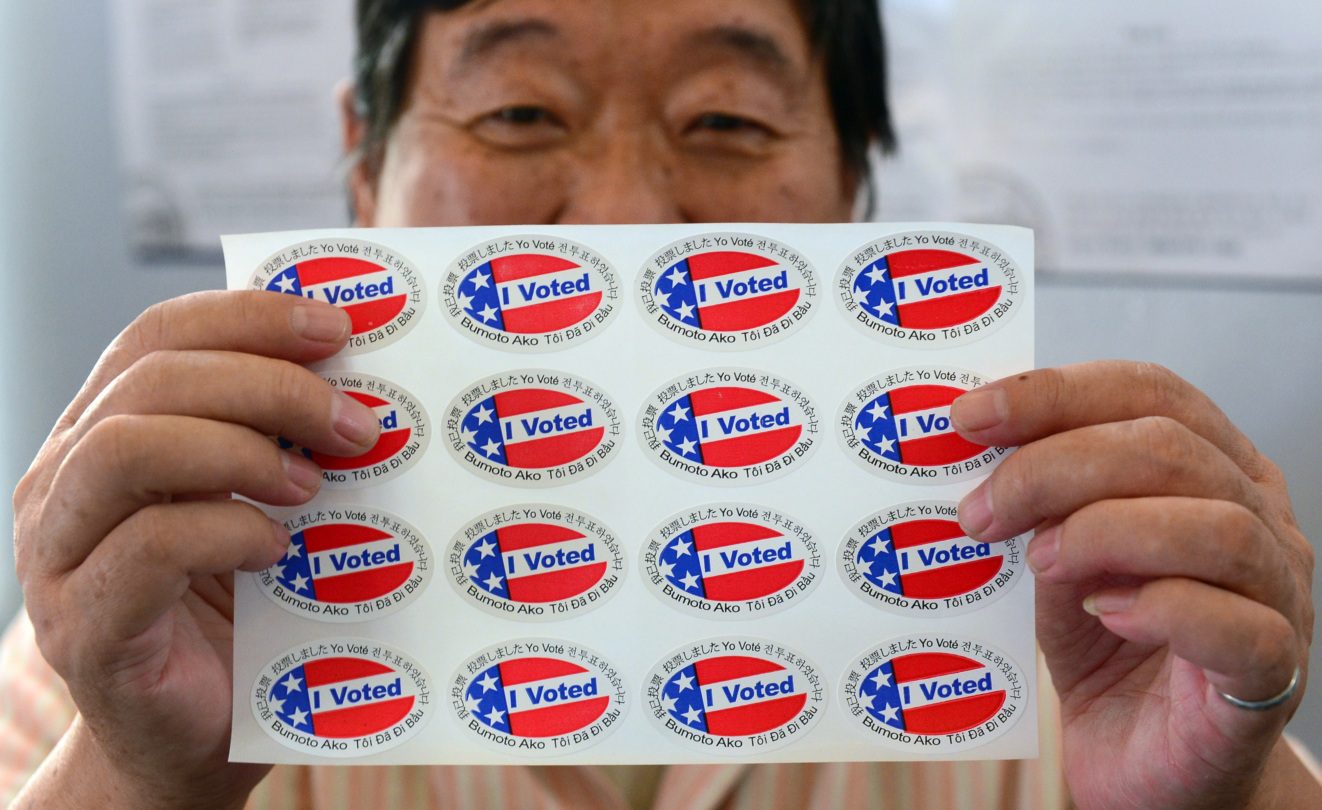A More Inclusive Democracy
Celebrating Asian American, Native Hawaiian, and Pacific Islander Heritage Month.

Published: 5.26.23
We celebrate the cultural diversity of Asian Americans, Native Hawaiians, and Pacific Islanders, and their enduring contributions to a stronger, more representative democracy.
It was only in 1952 and 1965, with the passage of the Immigration and Nationality Acts, that Asian Americans began to gain broad access to the freedom to vote. In 1975, reauthorization of the Voting Rights Act, with its guarantee of language assistance at the polls, welcomed more voters with limited English proficiency into the election process. This is critical for a diverse Asian American community that speaks more than 2,300 languages.
By 2020, a record 4 million Asian Americans, Native Hawaiians, and Pacific Islanders voted in the presidential election. Two-thirds of Asian Americans voted by mail, a reminder that lowering barriers to the ballot box helps make sure every voice is heard.
This month, we celebrate some of the many organizations working to lift up those voices in the present day and for the future.
APIA Vote, Empowering Pacific Islander Communities, and Pasifika Vote mobilize Asian American, Native Hawaiian, and Pacific Islander communities through voter registration, education, and advocacy.
Asian Americans Advancing Justice, AAPI Victory Alliance, and the Asian American Legal Defense and Education Fund work to protect the freedom to vote and increase representation in elected office.
We also honor individual leaders, including Minh-Thu Pham, Jennifer Chau, Varun Nikore, and Sachin Chheda. By organizing voters, combating disinformation, striving for justice, and fighting for fair elections, they carry on the work of building a more inclusive democracy.
And we acknowledge the many Asian American elected officials across the country helping to lead our democracy. Maryland Secretary of State Susan Lee, Oregon acting Secretary of State Cheryl Myers, and Connecticut Attorney General William Tong are all the first Asian American leaders to serve in their positions in their states. In addition to our first Black and Asian American vice president in Kamala Harris, they are joined by 21 Asian American, Native Hawaiian, and Pacific Islander members of Congress, and hundreds of state legislators, according to a count by the Asian Pacific American Institute for Congressional Studies.
Sign up for the weekly newsletter here.
State of the States
In Arizona, a judge ruled against Kari Lake in an election challenge and confirmed Katie Hobbs’s victory in the governor’s race last year. After a three-day trial, Superior Court Judge Peter A. Thompson ruled that Maricopa County election workers complied with the law and state election rules as they reviewed signatures on mail-in ballots. Maricopa County later asked the judge to sanction Lake and her lawyers for repeated false statements during the trial, including the baseless claim that the 2022 election was “rigged.” Lake, who lost the race by about 17,000 votes, used a news conference after the decision to promote lies about Arizona elections.
In Pennsylvania, the state Senate opened hearings on the confirmation of Al Schmidt as secretary of the commonwealth, the state’s top election official. Schmidt, a Republican, was a Philadelphia city commissioner in 2020 and received death threats after he refused to support former President Trump’s false allegations of election fraud.
In The News
- Oath Keepers founder Stewart Rhodes was sentenced to 18 years in prison for seditious conspiracy and other crimes related to Jan. 6. The judge called him “an ongoing threat and a peril to this country, to the republic and the very fabric of our democracy.” Kelly Meggs, also convicted of seditious conspiracy, was sentenced to 12 years.
- Election Denier Kari Lake lost another court battle in her ongoing attempt to overturn her loss in last year’s Arizona governor’s race. A judge again confirmed Katie Hobbs as the winner and ruled that Maricopa County election workers complied with the law and state election rules as they reviewed signatures on mail-in ballots.
- A bipartisan group of former governors urged the Utah Supreme Court to reject extreme partisan gerrymandering, arguing in a friend-of-the-court brief that it violates the Utah Constitution and damages democracy. The group is represented by States United and former Utah state legislator David R. Irvine.
- A New York judge set a March 2024 trial date for former President Donald Trump, who faces 34 felony counts of falsifying business records related to his 2016 campaign.
- With nine months until the first 2024 primaries, there are now 10 candidates running for president. Florida Gov. Ron DeSantis and South Carolina Sen. Tim Scott both launched campaigns this week, challenging Trump for the Republican nomination.